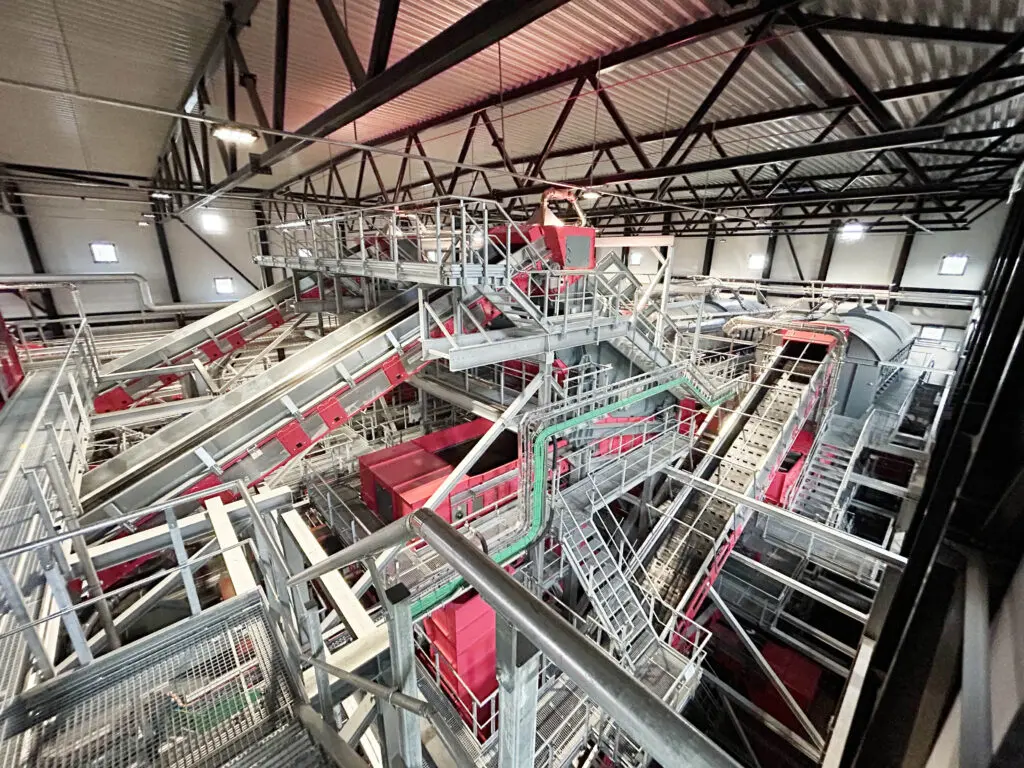Stadler has completed a new municipal solid waste (MSW) sorting plant for Stockholm Vatten och Avfall. The facility processes 50 tonnes of household waste per hour.
The plant features two parallel sorting lines that can operate independently. This ensures continuous service during maintenance or partial shutdowns and improves long-term reliability. It boosts material recovery and cuts emissions by diverting plastics, metals, and organic waste from incineration.
Advanced sorting for greater efficiency
Waste enters the plant through five walking floors with hydraulic covers. Dosing conveyors create a consistent flow for efficient processing. After manual pre-sorting removes bulky or hazardous items, Stadler’s screening drums separate waste by particle size.
A coloured bag sorting system uses five near-infrared and visual spectrometers to detect green bags containing food waste. These bags are extracted unopened, weighed, and routed for biological treatment, preserving the quality of the organic fraction.
Remaining material is sorted further using NIR units to recover plastics by polymer and colour. Magnets and eddy current separators extract ferrous and non-ferrous metals.
Movable conveyors beneath the screening drums allow quick adjustments to changes in input composition without stopping the line. The design enables the system to adapt to changes in waste streams and future capacity demands.
Compact design and central control
The plant is built on multiple levels to minimise its footprint. Walkways and platforms provide safe, fast access to equipment. A buffer system with weighing bunkers maintains steady material flow and enables precise monitoring of the residual fraction.
Vacuum units and cleaning points are distributed throughout the plant, improving hygiene and worker safety. The facility runs via a centralised control system. Manual input is only needed for routine cleaning and maintenance.
‘With our design, we delivered a compact, high-performance plant with built-in flexibility,’ said Uroš Tintor, project manager at Stadler.
‘What stands out is the adaptability,’ added Nejc Božič, also a Stadler project manager. ‘It handles seasonal variations with ease.’
Commissioning was completed in August 2024. The plant was officially inaugurated in October and has been running smoothly ever since.
Don't hesitate to contact us to share your input and ideas. Subscribe to the magazine or (free) newsletter.



